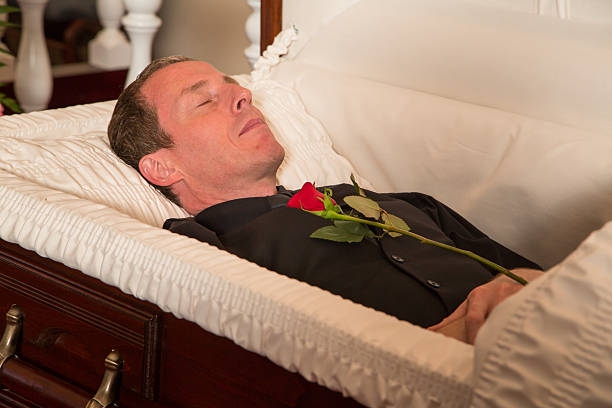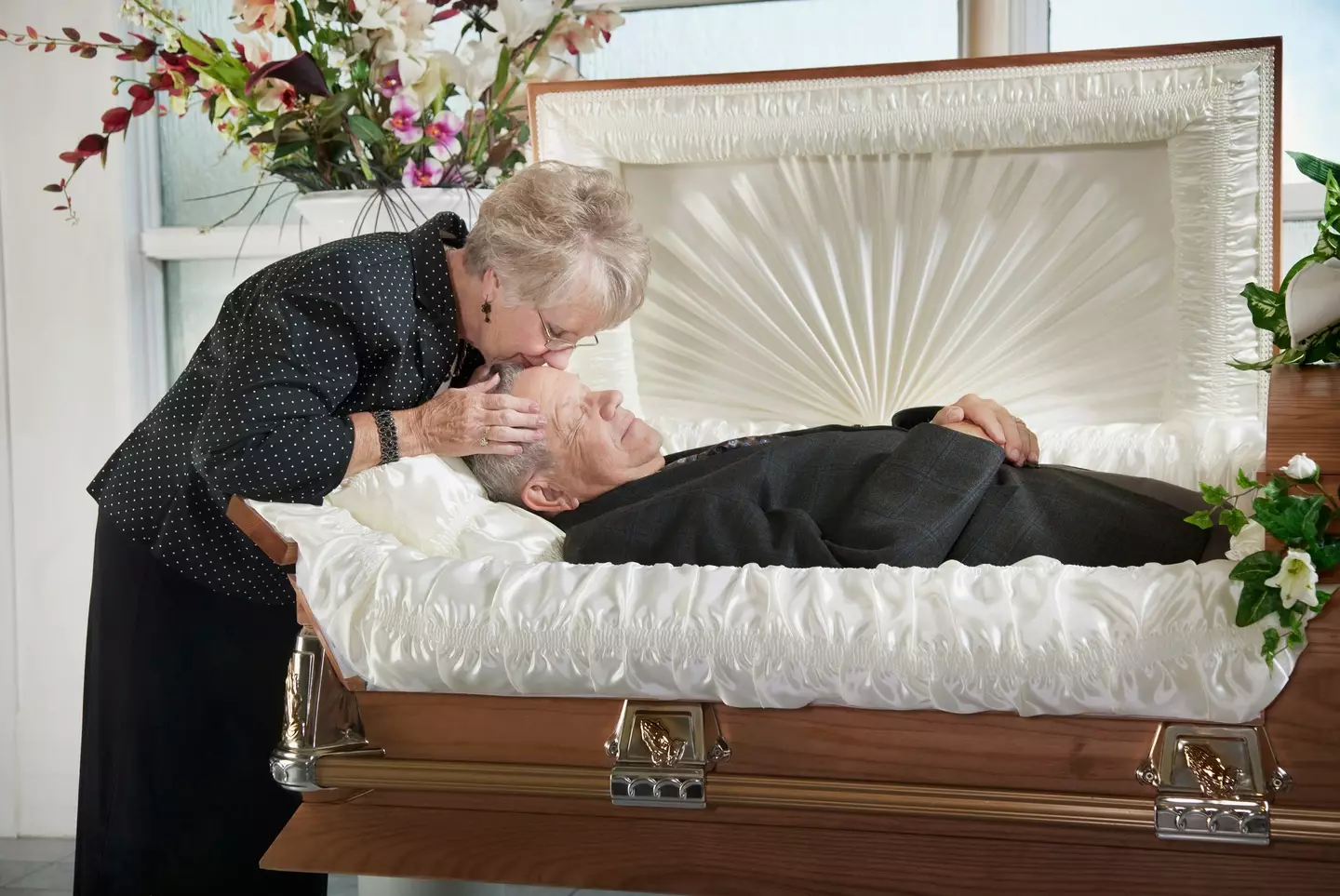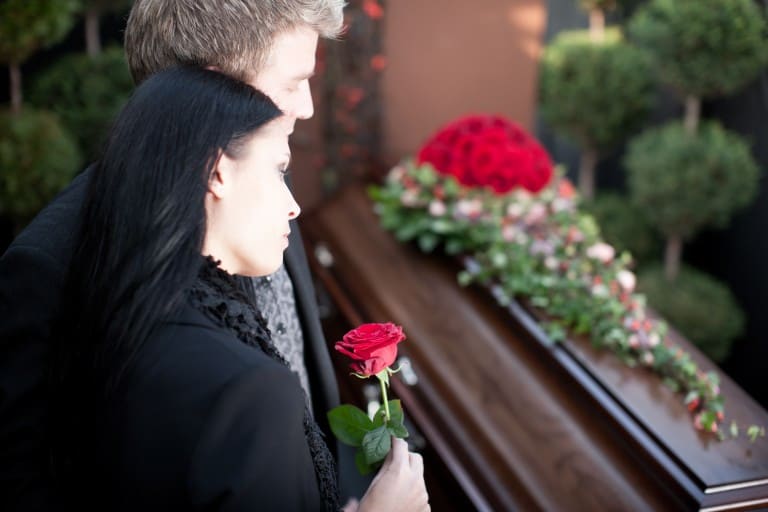In a world where cultural traditions, grief, and personal farewell rituals vary widely, it is relatively rare for a medical professional to go viral for addressing such a delicate topic. Yet this is exactly what happened when Dr. Viktor Ivanovik, a Moldovan physician known for sharing educational health content online, released a short video urging viewers to reconsider a practice many people have followed for generations: kissing a deceased loved one during final goodbyes.

The video, posted on TikTok to his nearly 300,000 followers, was brief but impactful. Standing in front of a medical backdrop, holding a clipboard and speaking with calm urgency, Dr. Ivanovik delivered a message that quickly circulated across social media:
“Never kiss the deceased.”
The statement was striking not because of its tone but because it challenged a deeply emotional and symbolic gesture that many families around the world consider essential in honoring and saying goodbye to loved ones. Within hours, the comments section filled with thousands of reactions—some shocked, some emotional, and others grateful for the information.
A Doctor’s Perspective: Why the Warning Matters
Dr. Ivanovik’s guidance was rooted entirely in health considerations. Without using sensational language, he explained that after a person passes away, certain natural biological processes begin. As the body transitions, environmental factors and microorganisms may begin to accumulate on the skin’s surface. Though these changes occur gradually, they can potentially expose others to bacteria—especially when there is direct, prolonged contact.

According to Dr. Ivanovik, people often do not realize that these subtle changes begin relatively soon after death. He noted that while the body is handled respectfully by medical and funeral professionals, unnecessary or close contact—especially near the face—may still carry risks for living individuals who are emotionally vulnerable and seeking closeness in their grief.
His message was not intended to induce fear, nor did it contain any graphic details. Instead, it emphasized preventive care, hygiene awareness, and health-conscious decision-making.
A Viral Reaction: Empathy, Debate, and Shared Stories
The reaction online was immediate and deeply emotional. The subject touched on grief, cultural heritage, and family practices—topics that many people rarely discuss publicly.
One of the most widely shared responses came from a viewer who wrote:
“I kissed my father and would do it a million times over. I can lose taste and smell, he is my father.”
This comment captured the emotional weight behind the discussion. For countless people, physical closeness during farewells is a profoundly meaningful act of love. It symbolizes gratitude, closure, and the desire to stay connected in a moment of profound loss. Many commenters echoed similar sentiments, emphasizing that the emotional value of the gesture outweighed any potential concerns they had previously been unaware of.
Others expressed surprise, admitting they had never considered health implications at all. Some thanked the doctor for raising awareness gently, without criticism or judgment.
Cultural Traditions and the Complexity of Farewell Rituals

In many cultures, touching the hands or face of a loved one who has passed is a deeply engrained tradition. Families may hold prayer rituals, rest their hands on the person’s forehead, or give a parting kiss as a final expression of affection. These customs provide comfort and continuity, helping people navigate grief.
Dr. Ivanovik acknowledged this complexity indirectly in his video. His message did not condemn cultural practices; instead, it highlighted the importance of understanding health considerations while respecting personal and cultural choices.
The discussion that emerged afterward reflected this nuance. Commenters from around the world shared how their families approached final goodbyes—some through touching the hands, some through prayer, others through maintaining physical distance. Many said they appreciated the doctor’s sensitivity in offering guidance without undermining traditions.
A Reminder About Health Awareness in Sensitive Moments
While the emotional aspect of farewell rituals is deeply human, Dr. Ivanovik’s video underscores a broader point: health and safety should still be considered even in times of grief.
Medical professionals often encourage families to focus on safe, hygienic forms of contact during viewings or memorials. Many of these recommendations are standard practice in funeral homes, which follow established guidelines to minimize health risks for both staff and visitors. However, individuals may not always be aware of these guidelines, especially when the focus is understandably on mourning and saying goodbye.
By raising awareness, the doctor helped start a conversation about how to balance emotional needs with protective measures. For some, this might mean choosing a gentle touch on the hand instead of the face. For others, it may mean relying on verbal goodbyes, symbolic gestures, or cultural rituals that do not involve close contact.
Social Media as a Platform for Education

Dr. Ivanovik’s viral video highlights an emerging trend: medical professionals using social platforms to share information in ways that are accessible, brief, and empathetic. While social media is often a place for entertainment or opinion, it can also serve as a powerful tool for public health awareness.
In the comments beneath the video, many users expressed gratitude for the clear, respectful explanation. Others mentioned they planned to share the information with family members who participate in traditional mourning practices.
The conversation also touched on broader themes: how to approach grief safely, how different cultures handle farewell rituals, and how medical guidance can coexist with deeply personal decisions.
The Balance Between Emotion and Health
A key takeaway from the discussion is that personal decisions surrounding farewells are deeply individual. For some, physical gestures of affection are irreplaceable. For others, the doctor’s advice may encourage a different approach—one that preserves the sentiment while minimizing risks.
No single answer fits every scenario. Instead, Dr. Ivanovik’s message invites people to reflect on their choices with greater awareness.
His central point was not to discourage love or connection but to encourage informed decision-making. Even in moments filled with sorrow, safety and health remain important.
A Wider Conversation About Respect, Ritual, and Care
The significance of the doctor’s message goes beyond one video. It encourages a broader conversation about how societies navigate grief with dignity while respecting both emotional and health-related concerns.
Family traditions evolve over time, sometimes in response to new information. Many commenters noted that they appreciated being able to understand the health considerations before making personal decisions. Others said they would continue their traditions but now with a clearer sense of both the emotional meaning and the potential risks.
What ultimately emerged from the discussion was a sense of community: people sharing stories of love, loss, and memory, while learning something new about a topic few had considered in scientific detail.
Conclusion: Awareness Without Judgment
Dr. Viktor Ivanovik’s message is a reminder that even in moments of profound emotion, it is important to stay aware of health risks. His approach, calm and educational rather than sensational, helped create a meaningful dialogue that balanced science with empathy.
The discussion highlighted that farewell practices are intensely personal and culturally diverse. Many people will continue to follow the traditions that bring them comfort, while others may choose different expressions of goodbye after learning more about the medical perspective.
The doctor’s video ultimately reinforces a universal principle: honoring loved ones can coexist with protecting our own well-being. Through awareness, respect, and thoughtful understanding, families can navigate moments of grief in ways that feel both meaningful and safe.
